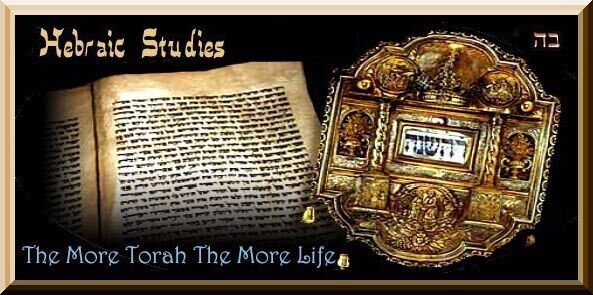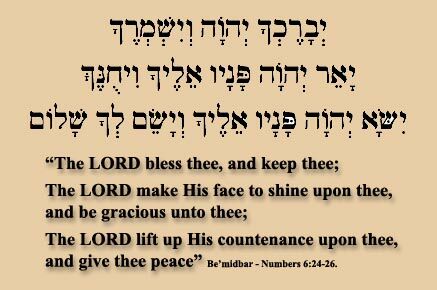Hebraic Studies – Parashat Nasso
Please Note: Firefox and
some other search engines are not suitable
Use Google Chrome for this page to load perfectly!

Please
do NOT
visit this site on Shabbat or on a
![]() -
Y-H-V-H, which we usually pronounce as “Adonai” or “HaShem”.
-
Y-H-V-H, which we usually pronounce as “Adonai” or “HaShem”.
*“This is My Name forever,
and this is My memorial to all generations.”
Shemot - Exodus 3:15.
Although some minor alterations have been made relating to names and attributes having been corrected.
Please Note: Verse numbers may at times vary in non-Jewish Bibles.
Bemidbar - Numbers Chapter 4 verse 21 to Chapter 7 verse 89.
With Rabbi Reuven
Ben-Avraham.
When Elohim tells Moshe to command Aaron - Acharon and his sons to bless the Children of Israel he says;
“And ![]() spoke unto Moshe, saying: 'Speak unto Acharon
and unto his sons, saying: On this wise ye shall bless the children of
spoke unto Moshe, saying: 'Speak unto Acharon
and unto his sons, saying: On this wise ye shall bless the children of ![]() ) - shall say unto them” Bemidbar 6:22-23 (Jewish Publication Society (JPS) of the Torah).
) - shall say unto them” Bemidbar 6:22-23 (Jewish Publication Society (JPS) of the Torah).
There is an important lesson from the
statement “thus” that appears in this verse (ko - ![]() -
in Hebrew). He explained that “thus,” or “this way,”
the Cohanim had to bless the
Children of Israel, meaning, bless them as they are, or where they are.
-
in Hebrew). He explained that “thus,” or “this way,”
the Cohanim had to bless the
Children of Israel, meaning, bless them as they are, or where they are.
The Torah requires the priests to bless all
the Children of Israel where they are. They are not to bless only the
“important ones,” the more wealthy, powerful, knowledgeable or
pious. No, they are required to bless everyone!
With this Commandment the Torah makes a
powerful point on how we should approach people, as everyone deserves the
blessing from the Cohanim. Everyone deserves dignity,
love and peace, independently of their economic or social status. This is also
a good guide on how we should treat members of Jewish institutions, including
congregations. We must make our best effort so everyone feels like they are
being taken care of. The “blessing” should touch everyone, not only
big donors or prominent leaders.
This may sound easy, or even cliche, but it is something with which so many Jewish institutions struggle. Naturally, big donors and prominent leaders have to be heard and are always more recognized. But it is time that stop’s for having rankings in our community in Elohims sight, blessed be He, is horrid, for we are all equal! Thus there is no excuse to neglect everyone else.
“Thou shalt not take vengeance, nor bear
any grudge against the children of thy people, but thou shalt love thy
neighbour as thyself: I am ![]() ” Vayikra - Leviticus 19:18 (JPS).
” Vayikra - Leviticus 19:18 (JPS).
We must be constantly evaluated how every person feels, and verify if everyone is being heard, welcomed and appreciated. In every Jewish congregation and a Jewish institution, blessings must reach everyone. But I know all too well for a fact that there are elderly old Yidden, who are critically ill and terribly disabled and no-one of the Jewish community ever bother’s to visit them. May Elohim forgive the Jewish community’s?
I am aware this is a short study on this parasha, and I am applying it for is important as it has a powerful message!
Acharonic blessing

Always remember our motto seen on the logo at
the top of this page: “The More Torah, the More Life”, for ![]() Elohim, blessed be
His Sanctified Name, is the one who gave us our Life!”
Elohim, blessed be
His Sanctified Name, is the one who gave us our Life!”
Rabbi Reuven Ben-Avraham.
![]()
Return to our MAIN PAGE or go to our Main Index


